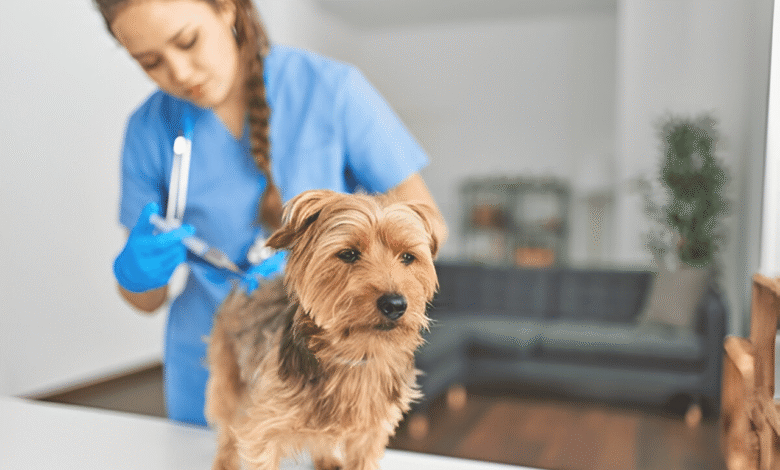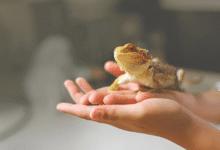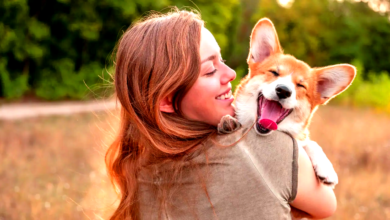
The Ultimate Guide to Pet Vaccination Schedules
Pet vaccination schedules made simple Learn when puppies, kittens & adult pets need core vaccines, boosters & lifestyle-based immunizations.
Pet vaccination schedules are essential for ensuring your furry companions live long, healthy lives. Vaccines protect pets from dangerous and potentially fatal diseases, some of which can also pose risks to humans. Whether you have a playful puppy, a curious kitten, or an adult pet, following the right immunization plan is crucial for their well-being. However, with various vaccines available and different timing requirements, many pet owners find it challenging to keep track of what their pets need and when.
Understanding pet vaccination schedules can seem overwhelming, but this guide simplifies the process by breaking down core and non-core Pet Vaccination, recommended timelines, and factors that influence your pet’s immunization needs. From puppies and kittens to senior pets, we’ll cover everything you need to know to make informed decisions about your pet’s health. By staying up-to-date with Pet Vaccination, you not only safeguard your pet but also contribute to the broader effort of preventing disease outbreaks in the animal community.
The Ultimate Guide to Pet Vaccination Schedules
Why Vaccinations Are Essential for Pets
Pet Vaccination play a crucial role in preventing infectious diseases that can be deadly for pets. Diseases like rabies, parvovirus, and distemper are highly contagious and can spread quickly among animals. Vaccines work by stimulating the immune system to recognize and fight these pathogens before they cause serious illness. By adhering to a vaccination schedule, you not only protect your pet but also contribute to herd immunity, reducing the spread of diseases in the pet population. Skipping or delaying vaccines can leave your pet vulnerable to infections that are otherwise preventable.
Core Vaccines
These are vital for all pets due to the severity of the diseases they prevent. For dogs, core vaccines include rabies, canine distemper, adenovirus, and parvovirus. For cats, core vaccines cover feline panleukopenia (distemper), feline calicivirus, feline herpesvirus, and rabies.
Non-Core Vaccines
These are recommended based on exposure risk. For example, Bordetella (kennel cough) is important for dogs that frequent boarding facilities, while feline leukemia (FeLV) is advised for outdoor cats. Your veterinarian can help determine which non-core vaccines your pet needs.
Puppy and Kitten Vaccination Schedules
A proper vaccination schedule is crucial for young pets, as their developing Immune systems need gradual protection against dangerous diseases. Puppies and kittens typically start their vaccine series at 6-8 weeks of age, when the immunity they received from their mother’s milk begins to fade. The initial round includes core vaccines – for puppies, this means the DHPP vaccine (protecting against distemper, hepatitis, parainfluenza, and parvovirus), while kittens receive the FVRCP vaccine (guarding against feline viral rhinotracheitis, calicivirus, and panleukopenia).
Adult and Senior Pet Vaccination Guidelines
Adult Dogs and Cats
For adult pets, vaccination needs shift from frequent puppy/kitten boosters to maintenance immunizations tailored to their lifestyle and risk factors. Core vaccines (like rabies, distemper, and parvovirus for dogs, or panleukopenia and rabies for cats) typically require booster shots every 1-3 years, depending on vaccine type and local laws. Non-core vaccines (such as leptospirosis, Bordetella, or feline leukemia) are given based on exposure risk—for example, dogs that visit boarding facilities may need annual Bordetella, while indoor-only cats might skip feline leukemia boosters.
Senior Pets
As pets enter their golden years, their vaccination needs evolve to balance disease protection with age-related health considerations. While core vaccines like rabies (often legally required) and distemper/parvovirus for dogs or panleukopenia for cats remain essential, vaccination frequency may be adjusted.
Common Side Effects of Pet Vaccinations
Mild, Temporary Reactions
Most pets experience only minor effects like slight lethargy, mild fever, or tenderness at the injection site. These typically fade within 24-48 hours without treatment. A small bump may form at the vaccination site but should shrink within a few weeks.
Moderate Side Effects
Some pets develop low-grade allergic responses, including hives, facial swelling, or digestive upset. While uncomfortable, these usually respond well to antihistamines or vet-prescribed medications. Temporary lameness can occur with certain injectable vaccines.
Severe Allergic Reactions
Rare but dangerous anaphylaxis requires emergency care – watch for vomiting, diarrhea, breathing difficulties, or collapse. These extreme reactions typically appear within minutes to hours post-vaccination. Always remain at the clinic for 15-30 minutes after high-risk vaccines.
Delayed Immune Responses
Autoimmune disorders like ITP may develop 7-21 days after vaccination in predisposed pets. Look for unexplained bruising, pale gums, or extreme weakness. Chronic inflammation at injection sites occasionally leads to sarcoma formation in cats months or years later.
Reducing Reaction Risks
Schedule vaccines when you can monitor your pet afterward. Space out multiple vaccinations rather than giving them simultaneously. Inform your vet about any previous vaccine reactions. Consider pre-medication with antihistamines for pets with allergy histories.
When to Call Your Vet
Seek immediate care for swelling that impedes breathing, persistent vomiting/diarrhea, or neurological symptoms. Monitor mild reactions – if they persist beyond 48 hours or worsen, consult your veterinarian. Keep a vaccine reaction log for future reference.
Breed-Specific Considerations
Small breeds and young puppies often show stronger reactions. Certain breeds like Dachshunds and white-coated cats have higher vaccine sensitivity. Older pets with chronic conditions may need adjusted vaccine protocols. Your vet can tailor a safer schedule.
Alternative Options
Titer testing measures existing immunity to potentially skip unnecessary boosters. Split vaccines into separate visits for sensitive pets. Some clinics offer antihistamine pre-treatment for high-risk animals. Always discuss alternatives with your veterinarian.
Post-Vaccination Care
Provide a quiet space for rest and ensure access to fresh water. Avoid strenuous exercise for 24-48 hours. Monitor appetite and bathroom habits. Gentle massage around the injection site may relieve discomfort. Never give human medications without veterinary approval.
Long-Term Monitoring
Report any unusual health changes following vaccination. Keep detailed records of all Pet Vaccinationand reactions. Discuss lifestyle-based vaccination strategies with your vet. Remember that vaccine benefits overwhelmingly outweigh risks for most pets. Regular wellness exams help catch any delayed issues.
Read More: 12 Common Pet Parasites and How to Prevent Them
Conclusion
Following the proper pet vaccination schedule is one of the most important responsibilities of pet ownership. By staying current with your pet’s immunizations, you’re not just protecting them from life-threatening diseases you’re also contributing to community-wide prevention efforts. Whether your pet is a playful puppy, an adventurous kitten, or a senior companion, adhering to recommended vaccination timelines ensures they stay healthy and happy for years to come.
Remember that every Pet Vaccination are unique, and factors like lifestyle, location, and overall health can influence their vaccination schedule. Regular check-ups with your veterinarian will help tailor the best preventive care plan for your furry friend. Investing in vaccinations today means avoiding costly treatments tomorrow and most importantly, it means more quality time with your beloved pet. Stay proactive, stay informed, and give your pet the lifelong protection they deserve.
FAQs
What is the most important Pet Vaccination?
Core Pet Vaccination like rabies and distemper are essential for all pets, as they protect against life-threatening, highly contagious diseases.
How often do adult pets need booster shots?
Most core vaccines require boosters every 1-3 years, while non-core vaccines (like kennel cough or feline leukemia) may need annual updates based on risk factors.
Are there risks to over-vaccinating my pet?
While rare, over-vaccination can cause immune issues your vet may recommend titer testing to check antibody levels before administering unnecessary boosters.
Can indoor pets skip certain vaccines?
Even indoor pets need core vaccines, as some diseases (like rabies) can enter homes through bats or other wildlife.
What should I do if my pet misses a scheduled vaccine?
Contact your vet immediately delayed vaccines may require restarting the series or adjusted timing to ensure full protection.








2 Comments